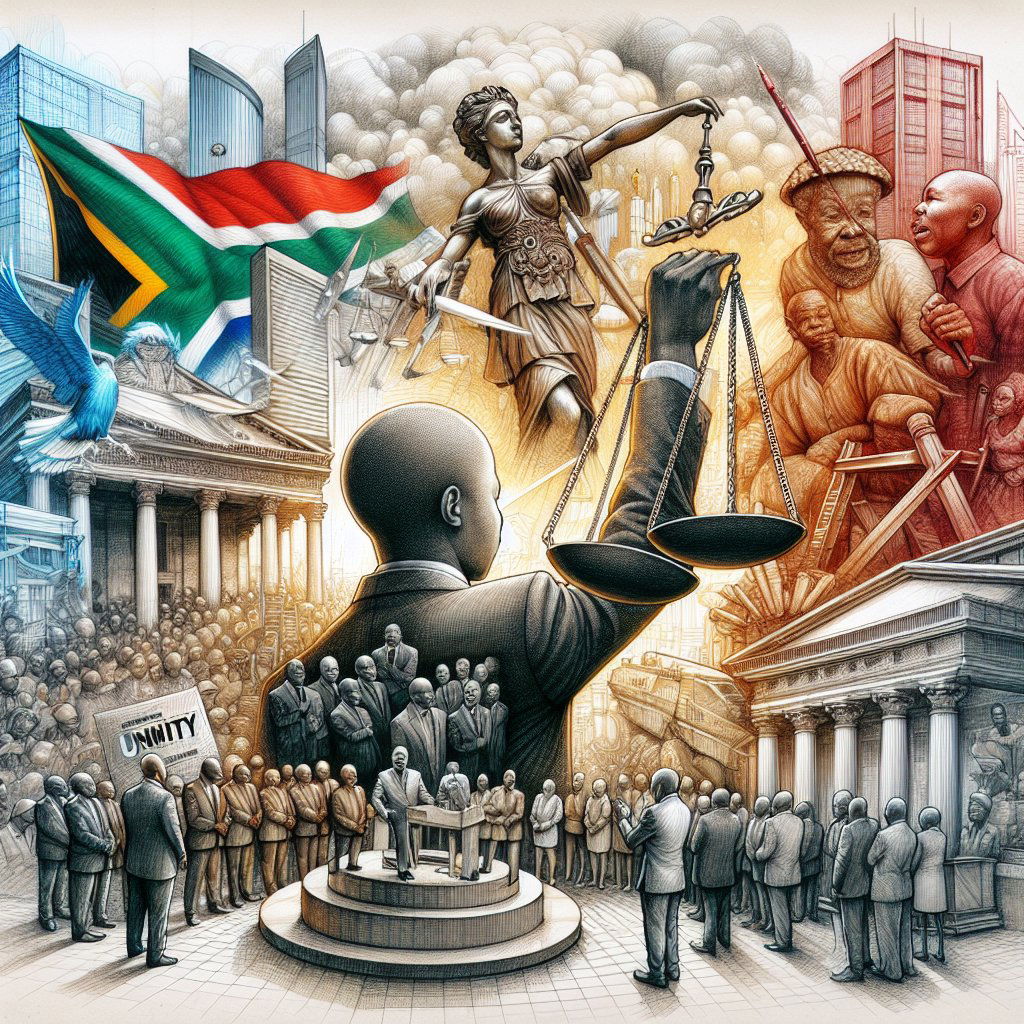Image created by AI
DA Takes Firm Stance Against Hate Speech by Reporting EFF Councillor to Human Rights Commission
In a decisive move to maintain the integrity of political discourse in South Africa, the Democratic Alliance (DA) has announced its intentions to report Economic Freedom Fighters (EFF) Tshwane councillor Obakeng Ramabodu to the South African Human Rights Commission. This comes in response to inflammatory comments made by Ramabodu during a council sitting in Pretoria, where he expressed a desire for physical violence and a "want for the blood of an Afrikaner".
Despite apologising for his remarks, Ramabodu's statements have ignited fierce criticism. The DA has publicly condemned the councillor's language as wholly unacceptable, stressing that such sentiments are antithetical to the nation’s commitment to unity and democratic principles. By escalating the matter to the Human Rights Commission, the DA sends a clear message that hate speech, especially from public officials, cannot be tolerated.
The ANC Tshwane Spokesperson, Bafuze Yabo, also commented on the incident, describing Ramabodu’s comments as "unfortunate". Yabo highlighted the importance of maintaining decorum and unity in political debates, especially during contentious discussions within council sittings. He affirmed that although council meetings can become chaotic, and emotional outbursts might occur, it is vital for political leaders to refrain from making divisive comments.
The incident comes at a time when South Africa continues to navigate the complexities of its multicultural society. It underscores the pressing need for leaders to exemplify the principle of non-discrimination enshrined in the nation's legal and ethical framework. It is a stark reminder that the country's hard-earned democracy must be protected by all, particularly those in positions of power and influence.
The DA's push to involve the Human Rights Commission demonstrates a belief in the rule of law and the importance of recourse when human rights are undermined. It is a stance that underscores that no individual, regardless of their status or political affiliation, is above the constitutional obligations that bind all citizens.
The incident has cast a spotlight on the responsibilities of political figures in shaping the social and political climate of the country. Political leaders stand as role models and are tasked with conveying messages that fortify the fabric of a nation still healing from the wounds of its divided past. Their words have the potential to either bridge gaps or deepen divides, making incidents such as this a focal point for civil society and governance.
By taking this step, the Democratic Alliance aims to defend the fundamental ethos of South Africa's democracy and promote a culture of accountability among public servants. The episode is a poignant example of the essential role that oversight bodies such as the Human Rights Commission play in sustaining democratic values and human rights.










